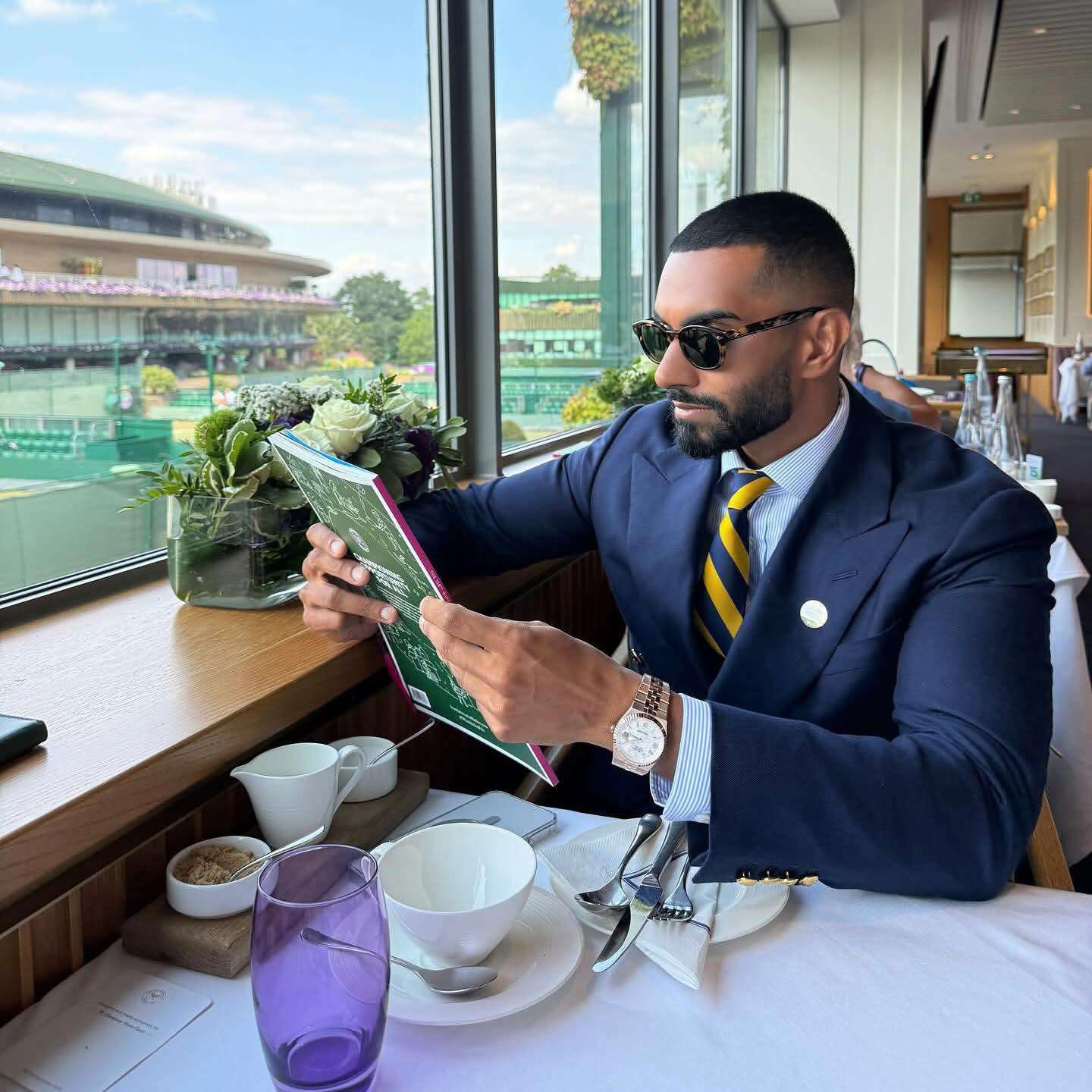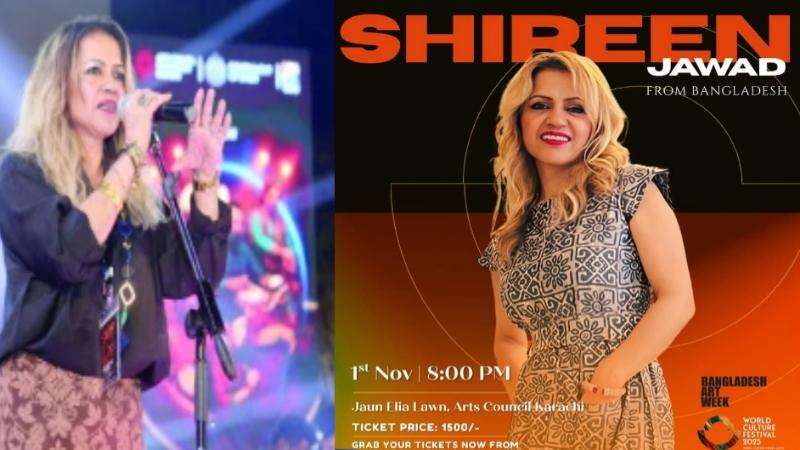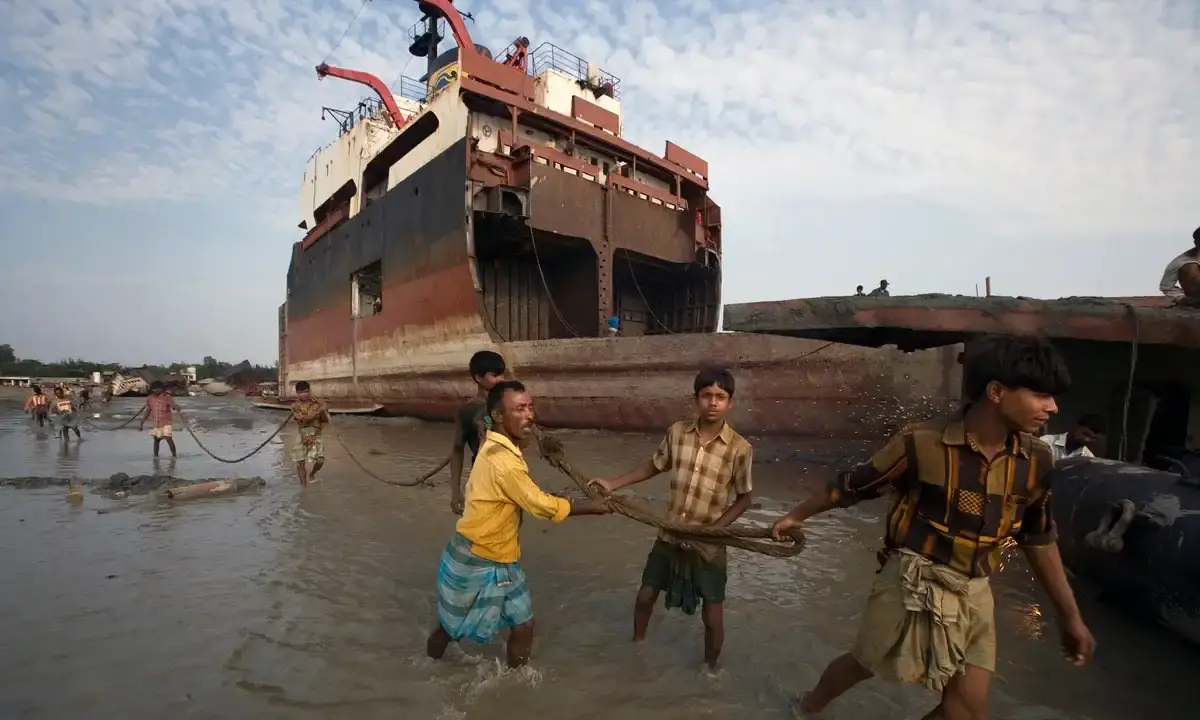UpBritish-Bangladeshi Star Shireen Jawad Bridges 18-Year Divide with Soulful Karachi Debut, Sparking South Asian Diplomatic Dialogue-The vibrant stage of the World Culture Festival (WCF) at the Arts Council of Pakistan, Karachi, has become the unexpected epicenter of a renewed cultural and political conversation, marked by the historic return of Bangladeshi artists after an 18-year hiatus. The performance that has drawn intense scrutiny is that of the celebrated British-Bangladeshi singer, Shireen Jawad, whose presence has been hailed as a symbolic reconnection and a catalyst for deeper regional understanding, Daily Dazzling Dawn understands.
The British-Bangladeshi-Shireen Jawad, a prominent figure in the British Asian music scene, is an artist with deep roots connecting her to both London, England, where she was born and raised on August 10, 1971, and Bangladesh, the homeland of her heritage. Jawad's dual identity as a Bangladeshi British singer is central to her musical journey. Inspired by her late parents who nurtured her love for traditional Bangla folk music, she initially qualified as a social worker before dedicating herself fully to her passion. Her professional career, spanning from 2007 to the present, includes albums like Punjabi Wala (2007), co-recorded with Habib Wahid, and Mathwali (2009), featuring a selection of folk songs collected from across Bangladesh. Her appearance in Pakistan, she noted, felt less like a foreign trip and more like a homecoming: "When I landed at the airport, it felt like I was in my own country. People here are incredibly warm, kind, and helpful."
A Soulful Performance and Cultural Kinship-Jawad captivated the audience with a performance that transcended borders. Though initially planning a Sufi rendition, she honored the organizer's request to sing in Bengali, performing her track 'Soulful and Spiritual' from the Punjabi Wala album, alongside 'Mathawali', a romantic composition. Her observation of the profound cultural similarities between Pakistan and Bangladesh—the warmth, expressiveness, and welcoming nature of the people—underscores the power of art to highlight shared traditions that political divisions often obscure. Visual artist Neharika Mumtaz, Founder of Bangladesh Art Week, mirrored this sentiment, showcasing Bangladeshi heritage and traditional motifs, reinforcing the belief that creative exchange is vital for presenting Bangladesh's diversity to a global audience.
Geopolitical Ripple Effects on India-Bangladesh Relations-While the event is primarily a cultural triumph for Pakistan and Bangladesh, the spotlight on their renewed artistic kinship casts a significant shadow over the often-fraught relationship between India and Bangladesh. This cultural thaw, after 18 years, may be interpreted by some as a subtle shift in Dhaka's regional diplomatic approach, potentially impacting the delicate triangular balance of power in South Asia.
The performance also throws a sharp focus on the contentious issue of media reciprocity between India and Bangladesh. While many Indian television channels are widely shown in Bangladesh, recent actions have highlighted a stark imbalance. The Indian government has, in the past, ordered the geo-blocking of several Bangladeshi TV channels on platforms like YouTube, citing concerns related to national security and public order. Conversely, though there have been petitions filed in the Bangladesh High Court seeking a ban on Indian channels over concerns about cultural impact and propaganda, Indian satellite channels continue to operate in Bangladesh. Shireen Jawad's successful, highly-visible tour in Pakistan could fuel further domestic calls in Bangladesh for reciprocal media access, arguing that if cultural and artistic exchanges are celebrated, a fair and balanced media landscape is equally crucial for mutual respect and independent identity. The cultural bridge built in Karachi, therefore, is not merely a stage event; it is a moment of significant regional diplomacy, prompting deeper reflection on the necessity of "art diplomacy" and fair regional relations across all sectors.








.svg)

